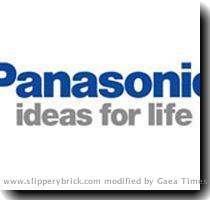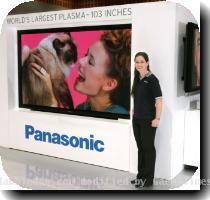Panasonic chief says its TV business will turn profitable by March 2011
By Yuri Kageyama, APWednesday, March 3, 2010
Panasonic chief says TV business to turn profit
TOKYO — Panasonic’s chief is optimistic about profit opportunities from taking over Japanese rival Sanyo, especially in solar panels, and vowed to return the company’s money-losing TV business to the black by March 2011.
Panasonic Corp. President Fumio Ohtsubo was upbeat about taking advantage of what he said was Sanyo Electric Co.’s technological lead in solar panels and batteries.
Panasonic, which makes Viera TVs and Lumix digital cameras, bought its smaller and unprofitable Japanese rival Sanyo for $4.6 billion last year — forming one of the world’s largest electronics makers.
Panasonic, while turning around money-losing Sanyo, must fight off the threat of Samsung Electronics Co. of South Korea, which has been reporting booming profits recently.
New kind of batteries called lithium-ion — in which Sanyo is among the top makers in the world — are now mostly used in gadgets like laptops and cell phones. But they are expected to become key in electric vehicles and plug-in hybrids.
Sanyo’s tie-up with Panasonic, based in Osaka, can potentially work as a plus because production in bigger numbers leads to cost cuts, critical for the proliferation of the fledgling, still costly, battery technology for cars.
Panasonic also has a joint venture with Toyota Motor Corp. to produce batteries for hybrids and electric vehicles. Sanyo, which already does business with Honda Motor Co., Volkswagen AG and Ford Motor Co., is likely to be expanding partnerships with other automakers.
Ohtsubo said that kind of difference in approaches was likely to continue.
“If we deny each other’s corporate cultures, then there is no meaning,” he told reporters Wednesday at the company’s Tokyo office. “We can learn from each other.”
Analysts have been mostly positive about the Panasonic-Sanyo partnership.
“While the Sanyo acquisition may give an impression of less benefit due to acquisition-related charges, we believe that Panasonic management has already made actions to turn around Sanyo,” Macquarie Equities Research in Tokyo said in a report this week.
Panasonic’s profits are likely to get a lift from recovering U.S. sales and the introduction of 3D TVs, it said.
Solar panels are one area where the companies are certain to boost sales together by selling Sanyo panels through Panasonic’s home business, according to Ohtsubo. Panasonic does not make solar panels but has major consumer electronics and housing units.
Details of where else they can produce a win-win situation are still being worked out, Ohtsubo said.
Much of Sanyo and Panasonic’s product offerings, such as washing machines and digital cameras, overlap and may end up merely competing with each other.
Ohtsubo also said its money-losing TV business is recovering and will likely turn profitable during the fiscal year ending March 2011.
That will help the overall bottom line, and he was determined to avoid a third straight year of red ink for Panasonic.
“I would be too embarrassed to go out and say that,” Ohtsubo said.

